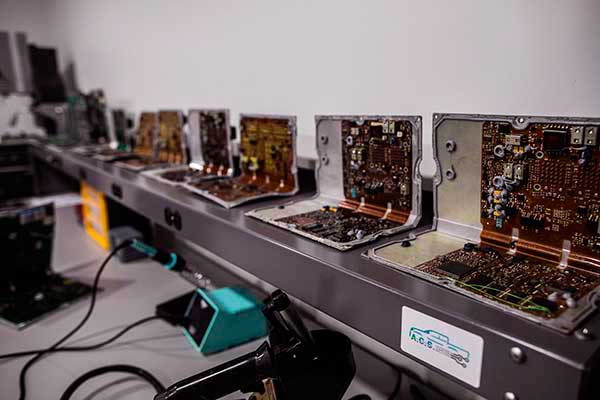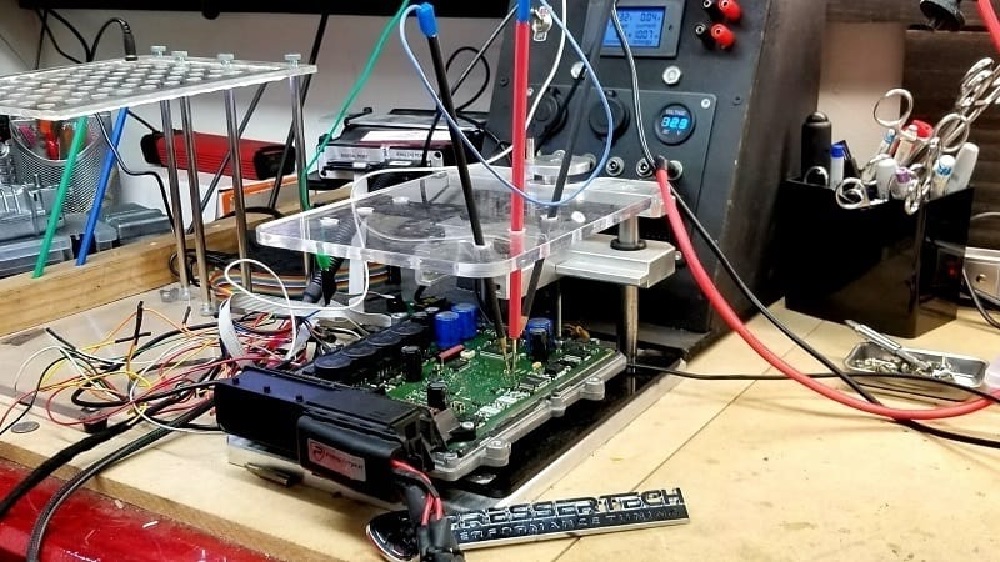In the realm of automotive repair and maintenance, Engine Control Modules (ECMs) play a pivotal role in ensuring optimal engine performance and vehicle efficiency. An ECM rebuild is a crucial service for maintaining the longevity and functionality of this vital component. This article explores the importance of ECM rebuilds, the process involved, and the benefits they offer.
Understanding ECM Rebuild
The Engine Control Module (ECM) is essentially the brain of the vehicle’s engine. It is responsible for managing various engine functions, including fuel injection, ignition timing, and emissions control. The ECM uses data from numerous sensors to make real-time adjustments to engine parameters, ensuring that the engine runs smoothly and efficiently.
An ECM rebuild involves disassembling and refurbishing a malfunctioning or damaged ECM to restore its functionality. This process is often more cost-effective than replacing the entire unit and can extend the lifespan of the ECM. Rebuilding an ECM can address issues such as faulty circuits, damaged components, and corrupted software, bringing the module back to its original performance levels.
The ECM Rebuild Process
Diagnosis and Assessment
The ECM Rebuild process begins with a thorough diagnosis of the vehicle’s engine control system. Technicians use specialized diagnostic tools to identify the specific issues affecting the ECM. This step is crucial as it determines whether a rebuild is necessary or if other repairs might be more appropriate.
Disassembly and Inspection
Once the diagnosis is complete, the ECM is carefully removed from the vehicle and disassembled. Technicians inspect each component, including the circuit board, connectors, and integrated circuits, for signs of wear, damage, or corrosion. This inspection helps in pinpointing the exact cause of the malfunction.
Component Repair and Replacement
Following the inspection, technicians repair or replace any damaged components. This may involve soldering new parts onto the circuit board, cleaning corroded connectors, or updating the ECM’s software. The goal is to restore the ECM to its original specifications and ensure that it functions correctly.
Reassembly and Testing
After repairs are made, the ECM is reassembled and tested extensively to ensure that it meets performance standards. Technicians simulate various operating conditions to verify that the ECM responds accurately and effectively. This step ensures that the rebuilt ECM will perform reliably once reinstalled in the vehicle.
Reinstallation and Final Testing
The final step involves reinstalling the rebuilt ECM into the vehicle. The vehicle is then subjected to a series of tests to confirm that the ECM is functioning correctly and that the engine operates as expected. This comprehensive testing helps to ensure that the rebuild has resolved the issues and restored optimal engine performance.
Benefits of ECM Rebuild

Cost-Effectiveness
One of the primary advantages of an ECM rebuild is its cost-effectiveness compared to replacing the entire ECM unit. Rebuilding an ECM can save vehicle owners a significant amount of money while providing a reliable solution to ECM-related issues.
Extended ECM Lifespan
An ECM rebuild can extend the lifespan of the module, allowing it to continue functioning effectively for many more years. By addressing issues early and refurbishing the ECM, vehicle owners can avoid premature failures and ensure long-term engine performance.
Environmental Impact
Rebuilding an ECM is also a more environmentally friendly option than replacement. By refurbishing existing components, fewer resources are used, and less waste is generated. This approach aligns with sustainability practices and helps reduce the environmental impact of automotive repairs.
Enhanced Engine Performance
A properly rebuilt ECM can significantly enhance engine performance. By restoring the ECM to its original condition, vehicle owners can experience improved fuel efficiency, smoother engine operation, and reduced emissions. This leads to a better driving experience and contributes to overall vehicle reliability.
Conclusion
An ECM rebuild is a vital service for maintaining the health and performance of a vehicle’s engine control system. By understanding the ECM rebuild process and its benefits, vehicle owners can make informed decisions about their engine maintenance. Opting for an ECM rebuild not only offers a cost-effective solution but also supports sustainability and enhances engine performance. Whether addressing minor issues or major failures, a well-executed ECM rebuild can ensure that your vehicle continues to operate efficiently and reliably for years to come.


